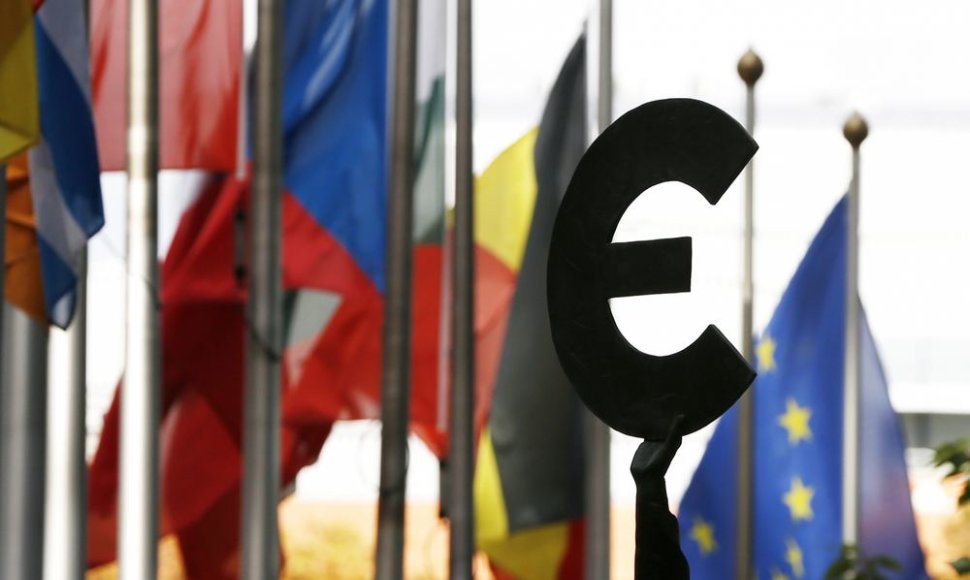In response to an interview to BNS by London financiers Manfred Bergmann, a representative of the European Commission said the European Union had lacked market regulation in the past.
"The question is not about whether or not a tax is painless. It is this time more about closing a fairness gap and implementing a sound principle of fiscal policy, i.e. that those who benefited either directly or indirectly from a public policy – such as the rescue operations which cost the tax payers in most EU countries very dear – should also be those that have to finance it," Bergmann, director for Indirect Taxation and Tax Administration at the European Commission, told BNS.
"The likelihood that the FTT is borne by the financial sector is much higher than for any other tax one could imagine, such as an increase in VAT or in corporate or personal income tax," he added.
Bergmann's comments followed a BNS interview of Roger Gifford, Lord Mayor of the City of London, and Mark Boleat, chairman of the Policy and Resources Committee of the City of London, in which they said the FTT, supported by 11 EU member states, would not provide expected benefit.
Bergmann believes Gifford is right in saying that the FTT is a tax on trading and not a tax on income, but adds that it also matches the British tax logic.
"Thus, it follows (to a certain extent) the logic of the UK's own Stamp duty and Stamp Duty Reserve Tax on purchases in shares issued in the UK with the exception that it is much broader in scope which then in turn allows for a much reduced tax rate (0.1% as compared to 0.5% in the UK)," the EC representative said.
"Also, he seems to overlook that the Commission proposal is about harmonizing national taxes already in place or being in the pipeline. It is not about introducing a new tax," Bergmann said in an emailed response to BNS questions.
According to the EC representative, when raising the issue of the FTT's impact on trading volumes, "one should not forget that liquidity and trading volumes are no longer seen as ends in themselves."
"Since the collapse of Lehman Brothers back in 2008, the business models of financial markets have come under much more scrutiny, and business models identified as doing more harm than generating benefits are to be scaled back with the help of improved regulation," Bergmann said.
"The FTT is intended to complement this regulation and should, thus, contribute to making markets more effective, inviting them to focus more on long-term needs and welfare-enhancing business models while helping to scale down market excesses and business models that do not improve the efficiency of markets," he added.
In response to Gifford's criticism that the tax would unfoundedly restrict the markets, the EC representative said that political goals have changed in recent years.
"Thus, policy no longer aims at as little regulation and restrictions as possible but at a right mix and ambition of regulation. Tax policy is part of this new regulatory environment and it has the advantage – as opposed to regulation - of leaving participants with the choice between continuing or not of taxable business models," Bergmann said.
Resisting the FTT, the British stress that it would also affect countries which are against it. This is why London plans to turn to the European Court of Justice over the instrument.
"Indeed, one design feature of a harmonized tax is that it does not discriminate against financial institutions of participating member states. Thus, everyone who wants to serve or participate in the market for financial instruments of the 11 Member States will have to pay the tax, irrespective of where he is located. Being made aware of this, financial institutions of non-participating countries can then chose whether they want to serve this market and pay the tax or whether they no longer want to serve this market. The Commission considers this market to be too big to be simply ignored – after all, it represents 1/6 of the global market," Bergmann said.
Supporters of the FTT maintain it is a good way to make the financial sector repay the debt for the support provided to the sector during the crisis. With the tax in place, transactions with shares and bonds would be subject to 0.1 percent tax, while transactions with financial derivatives would be subject to 0.01 percent tax.
The Commission says the tax would help generate EUR 30-35 billion in annual revenues.
In February, introduction of the financial transaction tax was supported by 11 of the EU's 27 members, including Germany and France. Lithuania's Prime Minister Algirdas Butkevičius said shortly after the general elections in late 2012 that the Baltic state would also have the tax but later changed his opinion.












